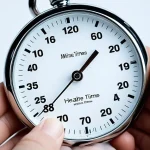The Direct Impact of UK Sports Events on Local Tourism
The influence of UK sports events on local tourism is profound, triggering noticeable spikes in visitor numbers. During major events like Wimbledon, the Premier League matches, and the London Marathon, host cities receive significant influxes of tourists. This sudden boost translates into immediate economic activities, especially in sectors catering directly to visitors.
For example, Wimbledon attracts tens of thousands of visitors who not only attend the matches but also spend on accommodation, dining, and local attractions. Similarly, Premier League fixtures generate substantial visitor traffic, particularly in cities with renowned football clubs. The London Marathon brings participants and supporters from across the globe, further enhancing local tourism effects.
Additional reading : How do UK sports academies shape future athletes?
Such events are pivotal in drawing tourists who might otherwise not visit these destinations. The local tourism effects include increased hotel bookings, vibrant street activity, and bustling local businesses. This cycle stimulates employment and supports service providers, underscoring how essential UK sports events are in shaping vibrant tourism economies.
In sum, these events do not just entertain; they actively drive tourism growth and economic vitality in their host regions.
Also to see : How do UK sports academies shape future athletes?
Boost to Local Economies and the Hospitality Sector
Major UK sports events consistently generate a substantial local economic impact, especially within the hospitality sector. Hotels, restaurants, and bars experience marked revenue surges, often earning several times more during event periods compared to regular days. For instance, cities hosting Premier League matches report hotel occupancy rates climbing dramatically, reflecting the influx of visitors requiring accommodation.
This sports tourism expenditure extends beyond lodging. Dining establishments and local vendors often report increased sales, as visitors seek meals and entertainment throughout their stays. These events also stimulate temporary job creation; hospitality businesses hire additional staff to cope with heightened demand, boosting local employment.
Comparing typical earnings against those during sports events clearly illustrates the hospitality sector’s reliance on such occasions. For example, during the London Marathon weekend, restaurants near the route see spikes in customer numbers, directly enhancing local income. The ripple effect benefits not only large hotels but also smaller, independent businesses that cater to tourists.
Ultimately, the local economic impact of UK sports events underscores their vital role in sustaining and energizing the hospitality sector, making them pivotal revenue generators for host cities.
Transport and Infrastructure Demands During Sports Events
Major UK sports events significantly increase demand on the transport sector. Visitors rely on a mix of public transit and private transport, leading to crowded buses, trains, and roads. For example, during the London Marathon, public transit systems face unprecedented usage peaks requiring careful planning to prevent delays. Event organisers work closely with city transport authorities to coordinate schedules and amplify capacity temporarily.
In response to rising visitor numbers, host cities often implement infrastructure improvements. These can include upgrading stations, expanding parking facilities, or enhancing pedestrian routes. Some projects serve immediate needs, while others create lasting urban benefits, like improved public transport accessibility beyond the event.
Event logistics management is crucial to smooth visitor movement. Strategies such as designated shuttle services, timed entry slots, and clear signage help control crowd flow and reduce congestion. Efficient transport planning not only addresses the short-term surge but also safeguards the visitor experience and local residents’ convenience.
In summary, the transport sector and infrastructure adaptations are vital elements that sustain the influence on tourism and ensure that local tourism effects from UK sports events are positive and manageable.
The Direct Impact of UK Sports Events on Local Tourism
UK sports events cause a sharp rise in tourist arrivals, directly influencing the dynamics of local tourism. Cities hosting major sporting occasions like Wimbledon, the Premier League matches, and the London Marathon observe significant visitor influxes, which strongly affect the surrounding economy.
For example, Wimbledon attracts tens of thousands of tourists annually, whose presence boosts local accommodation bookings, restaurant visits, and spending on attractions. Similarly, Premier League fixtures see noticeable increases in visitors to host cities, many travelling specifically for match days. The London Marathon draws international participants and spectators, amplifying these tourism effects even further.
These visits ignite immediate economic activities, such as increased sales in retail and hospitality sectors, enhancing the financial health of local businesses. The influence on tourism extends beyond just numbers; it activates vibrant street life and community engagement, fostering a lively atmosphere that benefits both tourists and residents.
In short, these events shape substantial local tourism effects by fostering spikes in arrivals and spending, which translate into essential economic stimulus for host cities.
The Direct Impact of UK Sports Events on Local Tourism
UK sports events cause notable spikes in tourist arrivals, strongly shaping the influence on tourism within host cities. For example, Wimbledon attracts tens of thousands of visitors annually. These attendees contribute significantly to local accommodation and dining sectors, elevating hotel bookings and restaurant patronage. Similarly, Premier League matches draw large crowds, many travelling solely for game days, which boosts footfall in city centres.
The London Marathon intensifies these effects with participants and supporters worldwide, creating a complex visitor profile that amplifies local tourism effects. These events trigger immediate economic activities; retail outlets and local attractions observe increased sales as tourists spend throughout their stays.
This surge in tourism fosters vibrant community engagement and urban vitality, benefiting both residents and visitors. The direct impact is evident in flourishing local business income and enhanced public spaces during the events. Therefore, UK sports events act as powerful catalysts that dynamically energize regional tourism markets by driving higher visitor volumes and spending patterns.
The Direct Impact of UK Sports Events on Local Tourism
Major UK sports events consistently drive sharp increases in tourist arrivals, profoundly impacting host cities’ economies. For example, Wimbledon draws tens of thousands of visitors who contribute to a notable rise in hotel occupancy and restaurant patronage. Similarly, the influence on tourism extends to Premier League matches, where fans flock to stadium cities, boosting foot traffic in local businesses. The London Marathon further amplifies these effects by attracting an international crowd, creating a diverse visitor demographic and stimulating varied local tourism effects.
These influxes spark immediate economic activities, such as increased spending in retail, dining, and local attractions, which directly enhance the financial health of city centres. The presence of visitors also energizes street life, fostering community interaction and a festive atmosphere that benefits both tourists and residents. Understanding this dynamic clarifies how UK sports events serve as powerful catalysts, directly shaping robust tourism ecosystems through intensified visitor numbers and spending during event periods.





